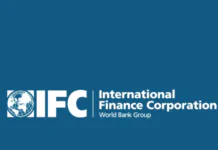EU UNIFIED LEDGER FOR TOKENIZATION PROPOSED BY BANQUE DE FRANCE GOVERNOR
It’s well known that the Banque de France is a fan of wholesale CBDC and tokenization. It started running wholesale CBDC trials in 2020. In a speech yesterday, Governor François Villeroy de Galhau outlined his vision for a Capital Markets Union (CMU) and a Banking Union within Europe. An EU Unified Ledger is one of his strategies to improve payments.
He described the Unified Ledger as “a new public-private infrastructure built around a distributed ledger that would include a wholesale central bank digital currency (CBDC), tokenised commercial bank money and tokenised financial instruments, and potentially the digital euro later on. This shared infrastructure would streamline transactions, reduce risks and costs, and thus foster CMU, while preserving the two-tier financial system.”
Rather than a “big-bang” migration he suggests a phased approach targeting specific market segments. Those that currently involve manual or domestic processes might be at the front of the queue. However, he envisions it expanding to a range of tokenized assets and cross border functionality.
While that’s on the wholesale side of payments, he also discussed retail payments. He noted that TIPS is a good backend solution, but that Europe lacks a common front-end payment solution such as in Brazil and India. He hopes that a digital euro might fit that role and envisions eventually integrating the digital euro with foreign faster payment systems.
Meanwhile, the Banque de France is one of the seven central banks involved in the BIS Project Agorá, the proposed unified ledger for cross border payments. Separately, the Banque de France’s DL3S wholesale CBDC platform is the only CBDC amongst three payment options in the European Central Bank’s current wholesale DLT settlement trials in central bank money. It was used to settle the first sovereign digital bond issued in EMEA by Slovenia.
@ Newshounds News™
Sources:
LedgerInsights
Project Agora
Banque de France
Wholesale DLT Settlement Trials
~~~~~~~~~
IN TRUMP-BACKED CRYPTO PROJECT, INSIDERS ARE POISED FOR UNUSUALLY BIG TOKEN PAYOUTS
The team could get 70% of World Liberty Financial’s tokens, a significantly higher-than-normal allocation from a project marketed as a solution to the “rigged” traditional finance system.
A whopping 70% of Trump-backed World Liberty Financial’s WLFI tokens will be reserved for the project’s insiders, according to a white paper draft obtained by CoinDesk.
Of the remaining 30% of the tokens distributed via a public sale, the founding team will also receive a portion of the proceeds.
When asked if a 70% allocation to insiders is high, one source who advises projects on such matters replied, “LMAO. Nice joke, ser.”
World Liberty Financial, the new crypto lending platform promoted by former U.S. President Donald Trump and his sons, advertises itself as a way of “putting the power of finance back in the hands of the people” and a solution to the “rigged” traditional finance system.
CoinDesk has obtained a draft white paper for the project. It reveals that the vast majority of the power promised by World Liberty Financial will be concentrated in the hands of a select few insiders: 70% of WLFI, the project’s “governance” crypto token, will be “held by the founders, team, and service providers.”
The remaining 30%, according to the white paper, will be distributed “via public sale,” with some of the money raised from that also going to project insiders – though some will be reserved in a treasury “to support World Liberty Financial’s operations
A 70% allocation to insiders is unusually high. Ethereum’s Genesis block reserved a combined 16.6% of ether (ETH) for the Ethereum Foundation and early contributors (though co-founder Vitalik Buterin later said they received even less). The three companies behind Cardano, another popular blockchain project, retained a combined 20% of ADA at its launch. Satoshi Nakamoto, the pseudonymous creator of Bitcoin, is estimated to hold a little over 5% of the total supply.
Asked if a 70% allocation to insiders is high, one source who advises early stage projects replied: “LMAO. nice joke ser.“
World Liberty Financial has not finalized its plans yet, according to a person close to the project.
“The team is working with a lot of contributors, and we’re not quite sure which version [of the white paper] you are referring to at the moment, but they have not finalized their tokenomics yet,” according to a statement from World Liberty Financial. “All the information we’ve shared so far that is final/approved can be found on WLF’s Twitter (X) and Telegram. Those will be the main channels for any announcements.”
The token details from the draft white paper follow a CoinDesk report Tuesday about World Liberty Financial, which revealed that the project’s team includes members of the Trump family plus people behind a recently hacked crypto app. CoinDesk also reported that World Liberty Financial will be built atop Aave, the popular Ethereum-based lending platform.
World Liberty Financial’s allocation raises the question of whether the project is an attempt to cash in on the Trump family’s fame rather than build a novel DeFi platform. Pre-sale proceeds have historically been largely invested back into projects, to grow them. If insiders plan to hoard most of the World Liberty Financial money for themselves, how will it deliver on its lofty promises?
One of those lofty promises is to make the U.S. the “crypto capital of the planet.” In a Wednesday Telegram post, the World Liberty Financial team advised skeptics that its “plan will speak for itself. The brightest minds in crypto are backing us, and what’s coming will make all doubters think twice.”
“Our mission is crystal clear: Make crypto and America great by driving the mass adoption of stablecoins and decentralized finance,” the post added. “We believe that DeFi is the future, and we’re committed to making it accessible and secure for everyone.
In general, public token pre-sales are rare in today’s crypto industry, largely because initial coin offerings (ICOs) – which were once the preferred method for crypto startups to raise funds by selling tokens directly to investors – have fallen out of favor. This shift occurred due to increasing regulatory scrutiny, widespread fraud and the emergence of alternative fundraising models that offer more oversight and investor protections.
World Liberty Financial’s approach differs from a traditional ICO, however, because the WLFI token will be non-transferable, meaning it cannot be traded between users. This restriction is likely intended to protect World Liberty Financial from securities law violations.
WLFI token that can’t be transferred
According to the white paper, “All $WLFI will be non-transferable and locked indefinitely in a wallet or smart contract until such time, if ever, $WLFI are unlocked through protocol governance procedures in a manner that does not contravene applicable law.”
It continues: “Each purchaser of $WLFI will be screened to ensure that no specially designated nationals or other persons sanctioned by FinCen are permitted to purchase $WLFI.” “FinCen” seems to be a mistaken reference to the Office of Foreign Assets Control, or OFAC, a U.S. Treasury Department office that’s distinct from the Financial Crimes Enforcement Network (FinCEN).
Earlier this week, CoinDesk revealed World Liberty Financial’s links to Dough Finance, a recently hacked lending app whose founders include Zak Folkman, a former pick-up artist and entrepreneur who is officially registered as the owner of World Liberty Financial LLC.
While Donald Trump appears to hope that World Liberty Financial could help him earn favor with the blockchain industry, even some of the former president’s supporters in the industry are warning that the plan could backfire.
“Is there something that we, as crypto twitter, can collectively do to stop the launch of world liberty coin,” Nic Carter, a prominent crypto industry figure and Trump supporter, asked on X (formerly Twitter).
He added: “I think it genuinely damages trump’s electoral prospects, especially if it gets hacked (it’ll be the juiciest DeFi target ever and it’s forked from a protocol that itself was hacked). it’s also an obvious target for the SEC. at best it’s an unnecessary distraction, at worst it’s a huge embarrassment and source of (additional) legal trouble. so are we signing a petition or what?”
Ahead of its launch, the project has attracted the attention of fraudsters and hackers. Yesterday, the X accounts of Eric Trump’s wife Lara Trump and Trump’s youngest daughter Tiffany Trump were hacked and used to promote a crypto scam crafted to look like World Liberty Financial.
Donald Trump is officially listed as the project’s “Chief Crypto Advocate.” His two oldest sons, Don Jr. and Eric, share the role of “Web 3 Ambassador.” Barron Trump, the former president’s 18-year-old son, is World Liberty Financial’s “DeFi Visionary.“
Though the Trump family appears to have been heavily involved in the promotion and inception of the project, the white paper takes pains to distance the project from any political affiliation, stating: “World Liberty Financial is not owned, managed, operated, or sold by Donald J. Trump, the Trump Organization, or any of their respective family members, affiliates, or principals. However, they may own $WLFI and receive compensation from World Liberty Financial and its developers. World Liberty Financial and $WLFI are not political and have no affiliation with any political campaign.”
@ Newshounds News™
Source: CoinDesk
~~~~~~~~~
XRP Lawsuit Update Today: Ripple Delays $125M Penalty as SEC Appeal Looms
Ripple has successfully delayed the $125 million penalty payment due to the SEC’s potential appeal of the August 7 ruling.
Both Ripple and the SEC have the option to appeal the ruling, which could significantly delay the resolution of the case.
The uncertainty surrounding the case has negatively impacted XRP’s price and trading volume.
With just 32 days left for the appeal and SEC’s silence post aug 7 is brewing the market with No appeal propaganda. Ripple Labs is hitting pause on the $125 million penalty as their legal battle with the SEC takes another twist. With the SEC hinting at a possible appeal of the August 7th ruling, Ripple’s legal team has successfully requested to delay the hefty payment.
Both sides are now eyeing their next move in what could be a game-changing showdown!
Ripple vs SEC Update
Judge Torres has approved Ripple’s request to keep the $125 million penalty in a bank account while the SEC decides its next move. This temporary hold gives both Ripple and the SEC time to appeal or respond to the important decision about XRP’s programmatic sales.
Ripple’s legal team, in a September 4 filing, secured approval from the SEC to delay paying the $125 million penalty until after September 6. The attorneys proposed depositing $139 million, representing 111% of the judgment amount, into a bank account for 30 days while both parties assess their next steps.
The Appeal Deadline Approaches
The court’s decision extends the time for potential appeals, allowing both Ripple and the SEC to file if they choose. If an appeal goes ahead, the case might drag on for years. Although Ripple had initially said they wouldn’t appeal, experts believe they might still need to do so to avoid accepting the $125 million penalty.
Fred Rispoli, a lawyer supporting XRP, suggested that a decision on the SEC’s appeal might not come until 2026. He noted that the SEC’s lawsuits against crypto exchanges have weakened its stance, making an appeal less likely. Rispoli also predicted an 80% chance that the SEC might drop the appeal if Hester Peirce becomes SEC Chair.
Despite the uncertainty, Ripple’s Chief Legal Officer, Stuart Alderoty, remains optimistic that an appeal won’t drastically change the case’s outcome. He believes the SEC has only a 10% chance of overturning the decision through an appeal.
XRP Price Analysis
The ongoing legal uncertainty has impacted XRP’s price, which has lost all of its recent gains. Currently trading at $0.55, XRP has seen a 15% drop in trading volume over the past 24 hours. Additionally, open interest in XRP futures has decreased by 0.67%, indicating reduced interest from derivatives traders.
Ripple and the SEC will need to decide on their legal strategies in the coming months. The crypto sector is watching closely as the possibility of an appeal looms. XRP holders are eager for a resolution that could significantly affect the crypto market. The SEC has until October 6 to challenge the August 7 ruling, and the XRP community remains on edge.
@ Newshounds News™
Source: Coinpedia
~~~~~~~~~
Newshound’s Currency Facts Youtube and Rumble
Newshound’s Podcast Link
Newshound’s News Telegram Room Link
Q & A Classroom Link
Follow the Roadmap
Follow the Timeline
Seeds of Wisdom Team™ Website
Subscribe to Newsletter






